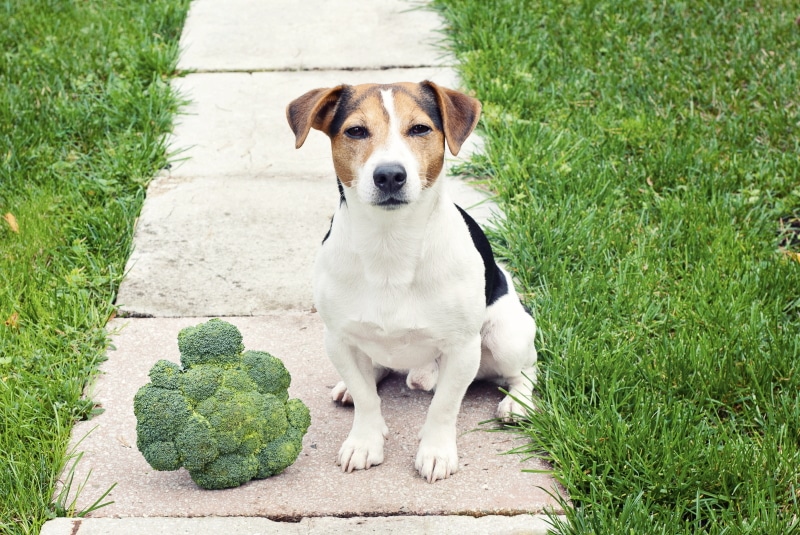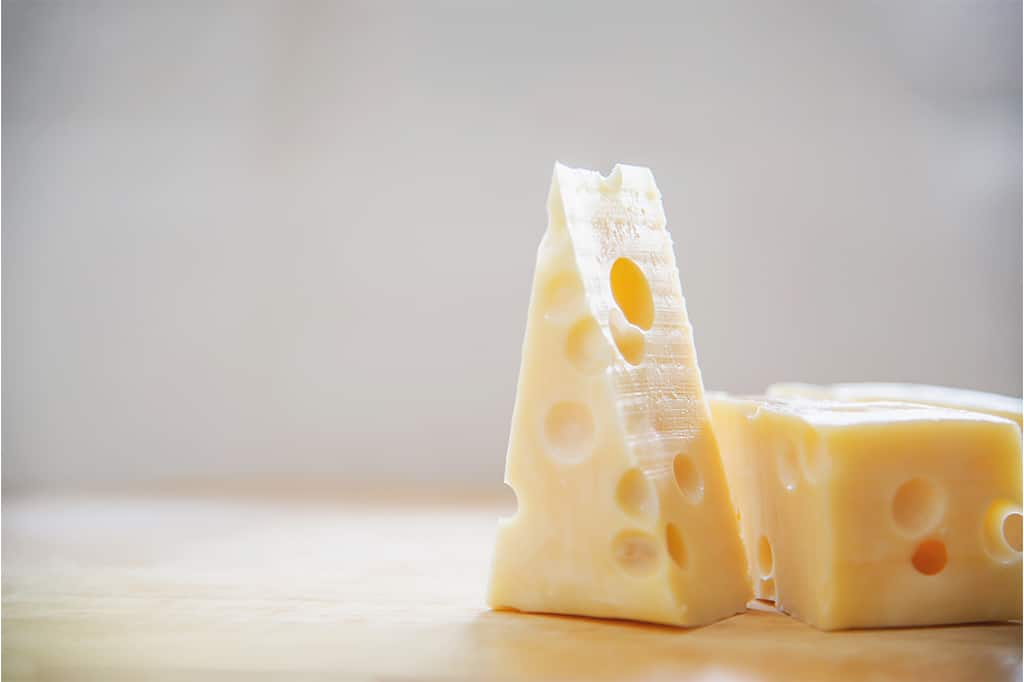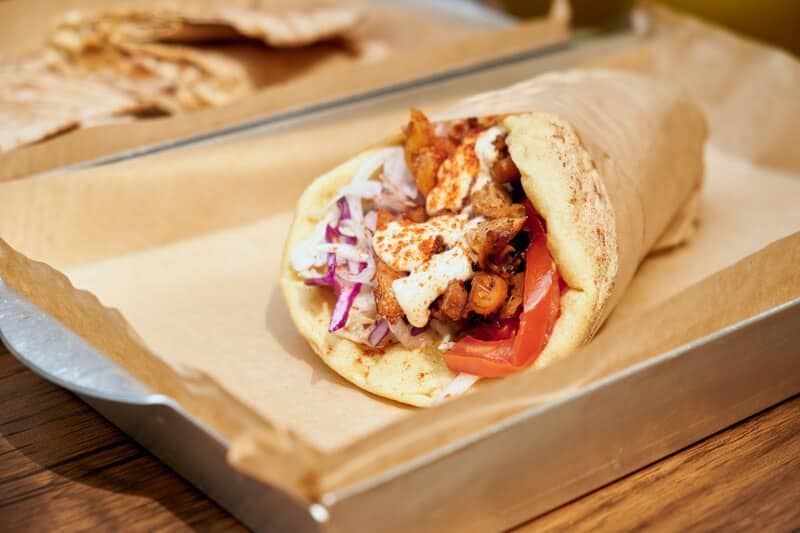According to a growing body of studies, dogs on meat-based diets may suffer serious health hazards.
If you’re a vegan or vegetarian, you’ve probably felt guilty about buying your dog meat-based pet food, especially because most of us feed that meat every day — morning and night. It conflicts with many of our ethical values; for others, it violates our desire to do the right thing by the earth.
At the same time, when it comes to our dogs, we’re in the midst of a health crisis. Increased cancer incidence and obesity rates are endangering our pets’ ability to live long, active lives. And a rising number of veterinarians and animal nutritionists are claiming that high-fat, high-protein, meat-based dog food is a major contributor.
The existing dog feeding system is ineffective. Unfortunately, one out of every four pet dogs is projected to acquire cancer. Furthermore, up to 51% of dogs in the United Kingdom are overweight or obese. Diabetes, arthritis, hypertension, renal disease, and cancer are all risks for overweight pets. Obesity can lower a dog’s lifetime by 20%, according to research: an obese dog can live up to two and a half years shorter than a dog of normal weight.
Alternatives do exist, though. A new wave of pet food companies is delivering 100% plant-based dog food that provides all of the nutrition your dog requires to flourish, without the guilt, obesity dangers, or unknown ingredients that might make our pets sick.
We think that eating meat is natural for dogs, but is it truly healthy?
If you check beneath any social media post promoting plant-based dog food, you’ll almost certainly find a long list of comments claiming that depriving “carnivorous” dogs of the meat they require to exist is unnatural.
Domestic dogs, like humans, are omnivores: they have evolved through thousands of years to digest the starches in plant-based meals and obtain all of the nutrients they require without eating meat. Later in this essay, we’ll go through how dogs’ biology has changed since their wolf forebears.
One of the most common pet food marketing fallacies is that feeding our four-legged pals a small wolf’s natural diet is healthful. “Feed your dog’s inner wolf!” and terms like “ancestral,” “biologically suitable,” and “raw” persuade us that our Spaniels and French Bulldogs have the same fundamental requirements as ferocious wild canids and would flourish on a diet of meaty animal corpses. This is absolutely not the case. A child interacts with a dog.
The dietary requirements of the dogs with which we live our homes are considerably different from those of their wolf forebears. Adobe Stock is responsible for this image.

A domestic dog’s dietary requirements differ from those of a wolf.
Between 15,000 and 40,000 years ago, dogs evolved from gray wolves; not only do today’s domestic dogs seem different from wolves, but their interior biochemistry is also different. Researchers have discovered unique genetic “mutations” that enable dogs to digest and utilise plant starches far more efficiently than wolves. Because of these new genetic features, even early dogs could flourish on a plant-based diet, our current canines are no longer rigid carnivores: they have significant genetic mutations that have adapted them to an omnivorous diet.
Gray wolves also travel large distances in search of meals and to protect their group from predators. Dogs’ natural predecessors would spend the most of their days hunting down tiny animals to eat, necessitating fatty, protein-dense raw animal flesh meals to replenish. This situation bears no relation to how our domestic dogs, who are notoriously lethargic, get their food.
According to a recent study, over 39% of dogs (over 3.7 million) hardly get half an hour of daily exercise. Despite this, these dogs are given at least two meals every day, which are put at their paws without any physical effort.
Our Cavapoos and Collies don’t require all those meaty calories even if they’re walked for an hour a day since they don’t live the naturally active lives of wolves.
Giving dogs protein they don’t need has no benefit (they can’t store the extra), and we’ve already shown that all that extra meaty fat is making our dogs overweight. High-meat diets are often high-calorie diets, and calories are the most important factor when it comes to weight gain caused by lifestyle factors. That implies if we want our dogs to live long and active lives, we need to drastically change the type of food we serve them. Veggie dog food includes less fat and more nutritional fiber, which aids in your dog’s weight management.
The C-word
Every dog owner’s biggest nightmare is discovering cancer in their pet, but cancer is now the top cause of mortality in dogs. A increasing number of veterinarians are connecting high cancer rates to meat-based pet meals, with dogs suffering from bioaccumulation’s subtle, long-term effects. Toxic chemicals in the environment accumulate (bioaccumulate) in animals as we progress up the food chain. Simply put, when our pets eat other animals, they ingest the poisons that those animals consumed.
Additionally, rancid lipids, which are commonly found in commercial meat-based diets, are a major source of free radical generation in dogs. Cancer and arthritis have been related to free radicals, which are unstable atoms that may harm cells. Instead of rancid fats, plant-based foods like blueberries, kale, hemp and sunflower seeds, seaweed, and broccoli provide antioxidant, cancer-fighting elements.
Vitamin C, vitamin E, beta-carotene, and selenium are all elements found in plant-based meals that have been shown to boost immunity and promote joint health. Just ask Lewis Hamilton, who famously converted his bulldog Roscoe to a vegan diet after his arthritis became worse. Roscoe’s inflamed paws recovered and his joint stiffness seemed to go away once he switched to a plant-based diet. This is just one of many first-hand examples of the benefits of eliminating meat from the dog’s food bowl.
The World Health Organization (WHO) issued a warning in 2015 that processed and/or red meat intake is connected to cancer in humans, asking people to consume less meat. Although there is less evidence on the animal side, high-meat dog meals have been directly linked to some malignancies.
On the other hand, a scientific study of 300 vegetarian dogs discovered that none of them got cancer after being “vegan” for more than five years. All of the research implies that removing meat from dog chow lowers the likelihood of the terrible C-word. That’s all there is to it.
Commercial meat-based food’s hidden “extras”
Researchers and testimonies from plant-based dog owners mention a slew of possible health benefits of feeding plant-based dog food, including reducing allergies, increasing immunity, and ensuring your dog lives to a ripe old age. The research supporting the health and safety of plant-based pet food was summarized in a 2016 study. But the bottom line is that by removing the meat from pet food, you’re also removing a lot of bad stuff.
Bones, fat, blood, and feathers are frequently used in commercial meaty pet food since they are less attractive portions of the animal that humans can’t or don’t want to consume.
These by-products are rendered, which means they’re melted down into a meaty gruel before being dried and turned into kibble, or they’re mushed up with cereal and grains in cans. Because you can’t see what’s in rendered meat-based meals, all kinds of contaminants may creep in. If you want to have a sleepless night, just Google “pet food recalls.”
What about feeding raw meat? Raw meat pet food may transmit harmful pathogens such as E. coli and Salmonella, as well as parasites, into our dogs and homes, according to the British Small Animal Veterinary Association, the American Veterinary Medical Association, and the World Small Animal Veterinary Association. While high fat levels make your dog’s coat lustrous, they also put your dog at risk for obesity. You know precisely what you’re giving your pet with plant-based food, and those components won’t come with a side of salmonella.
We think it’s “great” for dogs to eat meat, but wouldn’t a more diverse diet be better for them?
The caricature of a dog joyfully munching on a bone is one of many marketing pictures that sends a subliminal message: my dog likes meat, and without it, he or she will be miserable and starved. Is your dog, on the other hand, truly unhappy when he eats plant-based food?
According to science, no. In a recent piece, 2,308 dog owners were polled to see how their dogs reacted to their food: were their tails wagging as much? Is it true that they dashed up to their bowl? Were they yelping with delight? How quickly did they consume food? After considering all of these factors, the researchers concluded that “there is no consistent evidence of a difference between vegan diets and either conventional or raw meat diets.”
Dogs don’t want specific meals like chicken or beef; instead, they seek out the nutrients contained inside them. Our dogs should like their new plant-based meal just as much as their previous diet if we can offer those nutrients without using animal meat.
Plant-based pet food is undergoing a revolution, with new entrepreneurs making food that is tastier and more satiating than ever before. Most exciting of all, they provide a much-needed taste and texture variation beyond dull, meat-based kibble. After all, the images on traditional pet food packaging of juicy steak, fresh pink salmon, or delicate chicken breasts have nothing to do with the hard, brown kibbles or grey mush within.
When we consider that most dogs eat the same meat-based meal every day – along with meat-based treats – we can see that something has to change. Would you want to eat the same cuisine every day for the rest of your life, after all? It’s not just soul-crushing, but pet nutritionists agree that diversity is essential for a healthy gut microbiota.
The “secret sauce”

How can we claim that “dogs seek real meat” when we give them animals that have been cooked and processed to a point that they are no longer recognizable? Why would our pets choose to eat this insipid food in the first place? Many pet food producers add a “secret sauce” to their goods, such as animal fat sprayed on top or meat by-products processed with heat, enzymes, and acids to create intensified meat tastes.
These flavorings may appeal to pets, but it does not imply that they are nutritious or healthful. After all, humans have acquired appetites for unhealthy, fatty, and sugary meals, but that doesn’t mean we should consume them on a daily basis.
Of all, taste preferences are personal: it’s rare that all of the humans you know eat the same things, so why should dogs? We’d also become tired of eating the same thing for every meal, day after day. The diversity of plant-based alternatives available, from THE PACK’s “No-Moo Ragu” to HOWND’s fresh blueberry and coconut porridge, means you can feed your dog a variety of flavors and textures, finding out which ones they prefer and switching up mealtimes to keep things interesting.
We accept the misconception that feeding plant-based meals is prohibited (which is not true!).
Negative publicity surrounding vegan diets, including inaccurate allegations that feeding plant-based meals might be in violation of the UK’s Animal Welfare Act, has hampered the change to plant-based nutrition. This is just not the case: the Animal Welfare Act mandates that owners feed their dogs a “appropriate diet” that meets their nutritional requirements. Vegan and vegetarian diets are never mentioned as being improper.
It is unscientific to argue that dogs, who are omnivores rather than obligate carnivores, require meat to be healthy. “The argument that animals on vegan diets would always become unwell and that maintaining them is somehow cruel is counter to the scientific data in this field and is uninformed,” says Professor Andrew Knight, a veterinarian and animal welfare expert.
Is it possible for vegan dogs to acquire adequate protein?
If you’re a vegan, the question “but where do you get your protein?” is undoubtedly all too common. It’s no wonder that “vegan” dogs are frequently exposed to the same interrogation. In fact, given the widespread belief that dogs are obligate carnivores, the thought of a plant-based puppy is even more difficult to swallow. So, what’s the thing with protein and dogs?
The minimal quantity of protein necessary for canine development, according to current European dietary standards, is 18 percent of daily food consumption. Protein makes about 18-25 percent of the nutritional makeup of most complete dog diets, according to the labels. It will look less with wet food due to the added moisture content: after it is removed, the protein % is typically even greater.
Proteins are molecular “strings” made up of 20 different amino acids. When dogs ingest protein, their digestive system breaks these strings down into amino acid building blocks, which are then utilized by your dog’s body to generate a variety of proteins, including those needed to build muscle, produce hormones, and fight illness at any given time. Dogs can produce half of the 20 amino acids on their own if their meal provides enough of these building blocks (including Taurine).
However, they are unable to produce ten amino acids, thus they must be consumed. To be branded “complete,” a dog food must include all of them in sufficient amounts to fulfill official nutritional guidelines.
Is it true that these 10 necessary amino acids are only found in animal products? Obviously not. All ten can be found in high-quality plant protein sources, such as those found in full vegan dog food. This isn’t just speculation: a research published last year in a reputable veterinary journal evaluated the nutritional value of 19 meat-based and ten plant-based pet meals. What did it uncover? Diets based on plants were preferable to diets based on meat.
The sheer quantity of healthy plant-based dogs on the market today is proof of the theory. You may be familiar with Bramble, a Collie who, at 27 years old, claimed the Guinness World Record for being the oldest living dog. Bramble ate a rigorous meat-free diet of rice, lentils, organic veggies, and “nooch,” a popular vegan snack. Not only have dogs been proved to live on plant-based food, but they’ve also been shown to flourish in the absence of meat.








